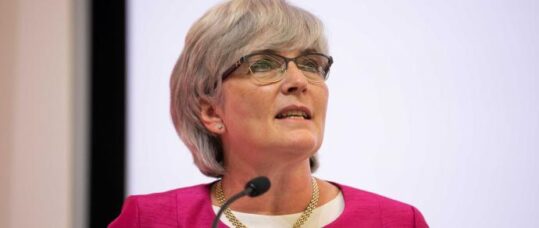Government must recognise ‘key contribution’ of primary and community care, says QNI chief executive

The Government must recognise the ‘key contribution and significance’ of primary and community care, Queen’s Nursing Institute (QNI) chief executive Dr Crystal Oldman has said.
Boris Johnson, who led the Conservative party to a landslide victory in the general election last week, needs to ensure recognition to primary care and community services is ‘equal’ to that ‘given when there are announcements around new hospitals,’ Dr Oldman told Nursing in Practice.
She said she would be writing to health secretary Matt Hancock this week to offer the QNI’s ‘help and support in delivering on the intention of more care in the community.’
Related Article: New preceptorship package for social care nurses
‘As a solution-focused organisation, we would really like to help,’ she said.
Since the Conservatives came to power in 2010, ‘we haven’t really seen the reality of their intentions’ and ‘need to see their intentions converted into action’, she added.
Commenting on social care, she continued: ‘Part of what I will be writing to him about is that as an organisation, we have networks that work in health services, in the third sector, and we have a new network starting next year for care home nurses.’
Dr Oldman said she was also ‘looking forward’ to the long-awaited green paper on social care, which has been delayed several times and was originally due to be published in the summer of 2017.
Pledges
Related Article: Applications to study nursing in England at ‘new low’
The Conservatives have promised to increase investment in the NHS to £34 billion a year above the 2018/19 level by 2023/24 – equating to a £20.5 billion extra in real terms.
Another flagship pledge to deliver 50,000 more nurses was criticised after it emerged that it included 18,500 existing and returning nurses.
During the election campaign, the party vowed to introduce a new NHS visa to offer fast-track entry and reduced visa fees for doctors, nurses and allied health professionals.
They said they would bring back a £5,000-£8,000 grant for student nurses to cover their living costs after their government axed bursaries for tuition and maintenance costs in 2017.
Related Article: Paul Rees appointed as permanent NMC chief executive and registrar
To help bolster general practice, the party said it would deliver 50 million more GP surgery appointments by 2024/25.
It would achieve this in part by recruiting 6,000 more GPs and 6,000 other primary care workers such as nurses, physios and pharmacists.

See how our symptom tool can help you make better sense of patient presentations
Click here to search a symptom


The Government must recognise the ‘key contribution and significance’ of primary and community care, Queen’s Nursing Institute (QNI) chief executive Crystal Oldman has said.



